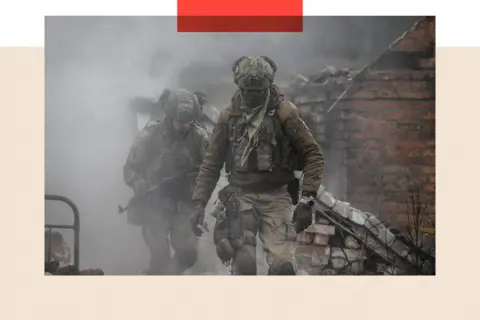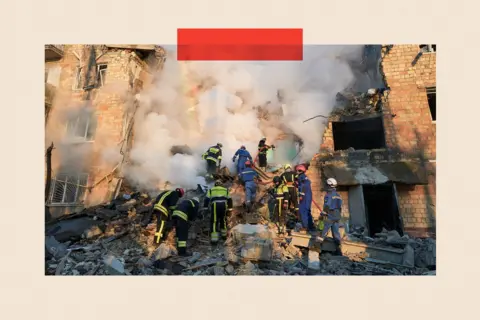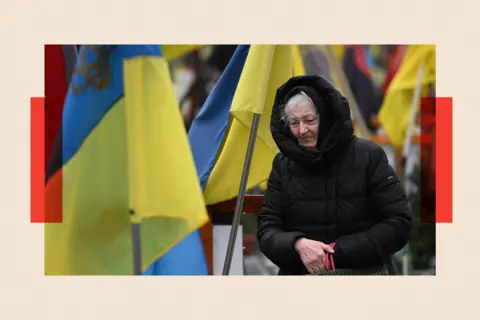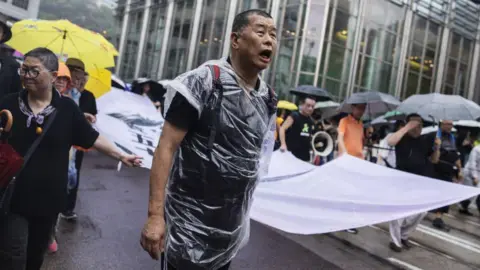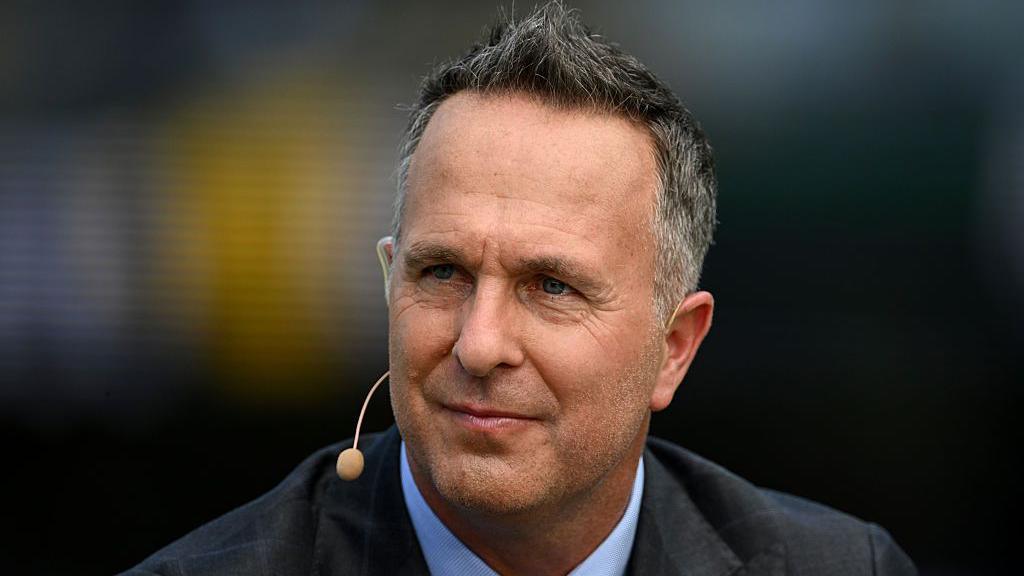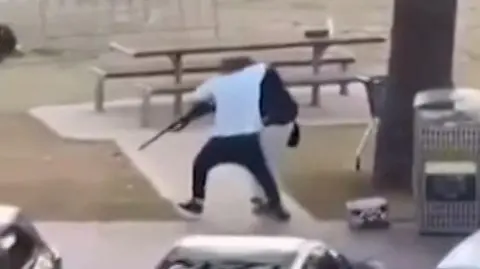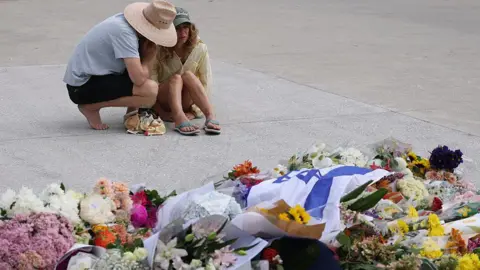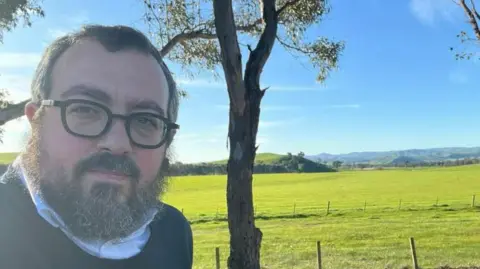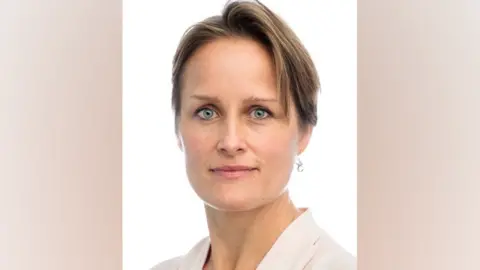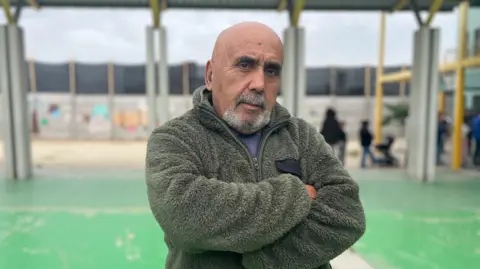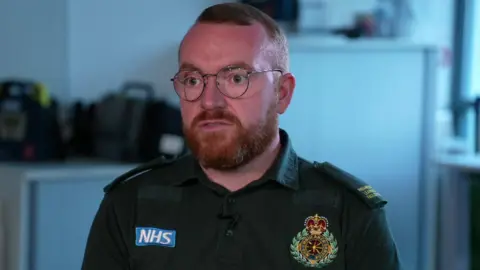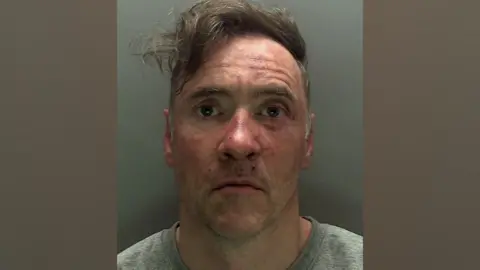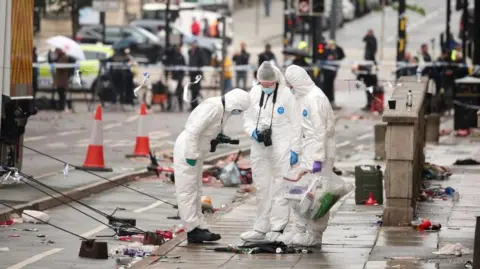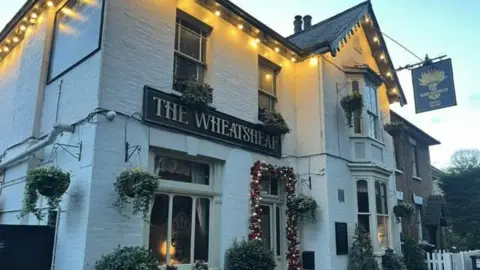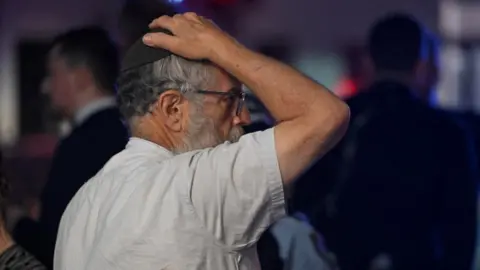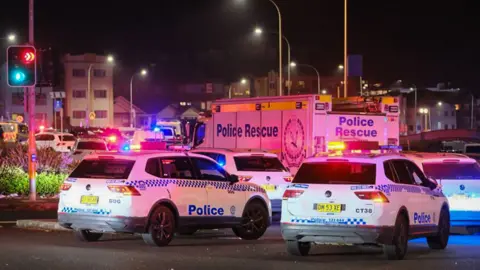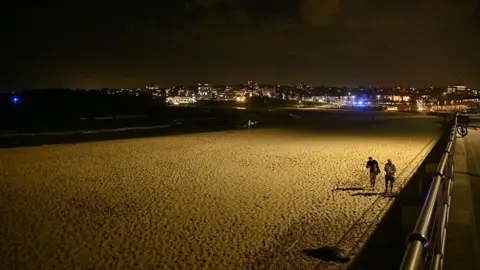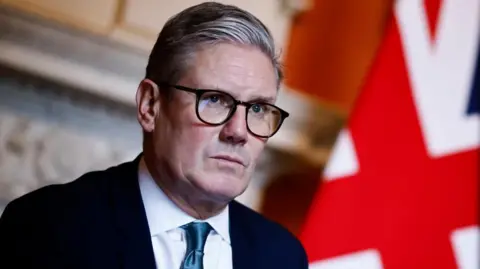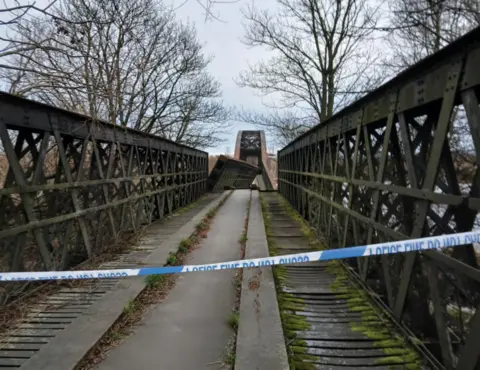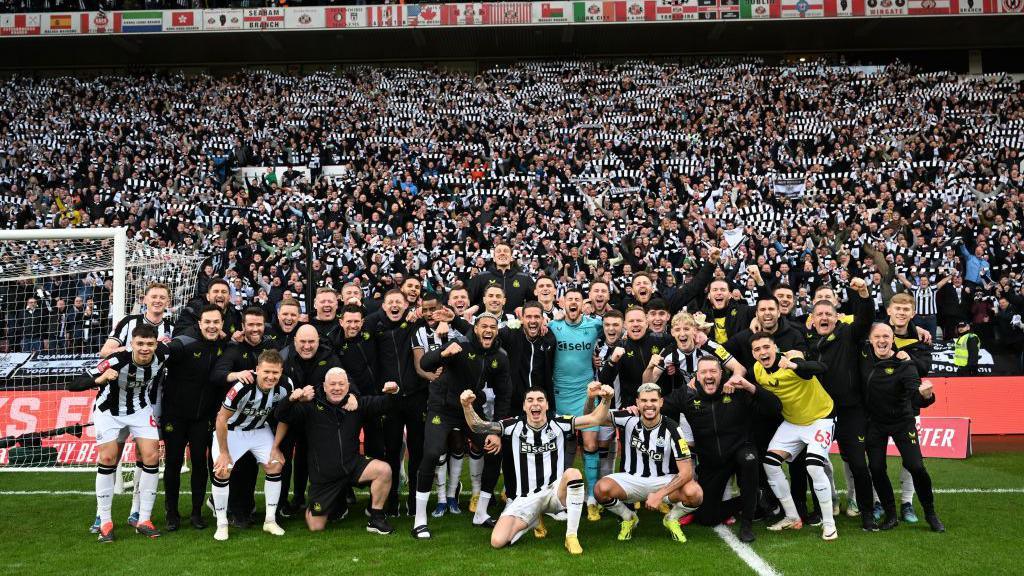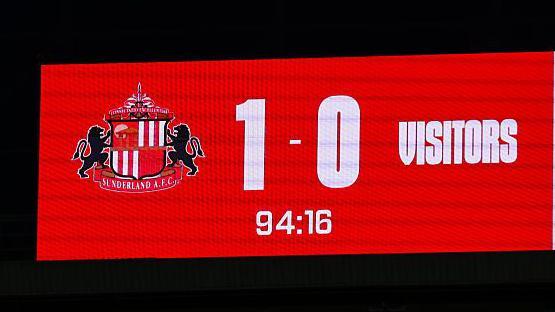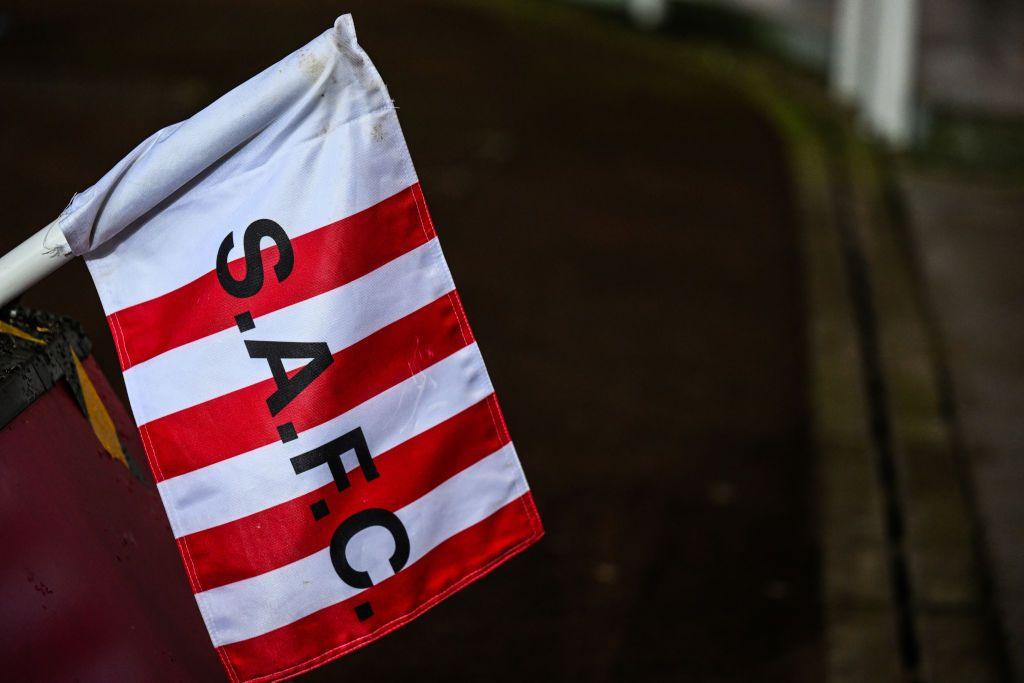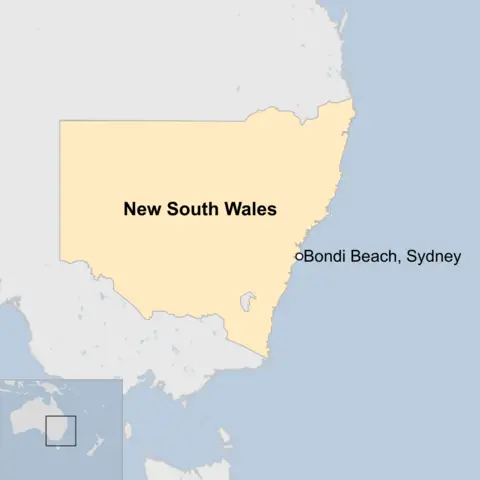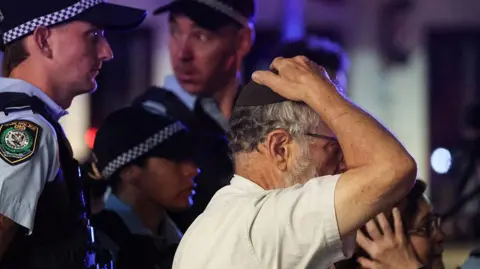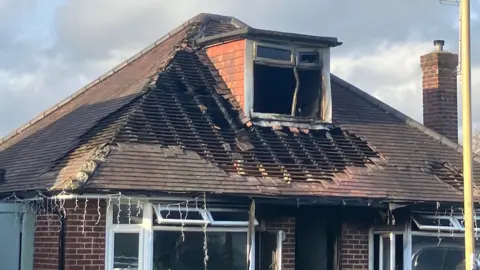'Throw the parcel at the door' - Evri couriers cutting corners to earn a decent wage
When Becky ordered a Barbie doll for her daughter, she got a notification from delivery firm Evri saying it had arrived. There was just one problem: it was nowhere to be seen.
There was no parcel at her front door, in the Hampshire village of Twyford, and the photo she was sent of its location was not one she recognised.
Becky turned detective - and she discovered that reports of similar incidents nearby had "snowballed".
Around the corner, her neighbour Jonathan had received a similar notification. It showed a photo of a parcel of tools he was expecting - taken inside a car - but nothing had been delivered. He tried to take it up with Evri, but told BBC Panorama that "they don't respond - it's very frustrating".


With millions relying on delivery companies to send their parcels this Christmas, we have been investigating Evri, including sending a journalist undercover as a courier.
The company is a market leader, but a recent customer survey of the 11 biggest delivery firms by industry regulator, Ofcom, suggested Evri had the most issues for parcels not being delivered and the highest level of customer dissatisfaction.
Amazon and FedEx came top for customer satisfaction.
While Evri disputes Ofcom's findings, 30 current and former workers have told us problems are being caused by growing pressures on couriers."They have to deliver so much volume now for a decent pay," one told us.
The link between poor service and work pressures was further borne out by Panorama's investigation, which found:
- Couriers at an Evri depot in the Midlands describing how to cut corners to complete deliveries on time - with one telling our undercover reporter: "You can even throw the parcel at the back door"
- Changes to Evri's pay rates have led some workers to claim they are earning less than minimum wage
- New, lower pay rates for so-called "small packets" were also affecting courier earnings, we were told
- Larger items being "misbanded" as small packets, some couriers told us, including heavy flatpack furniture and radiators
In Hampshire, parcels started to go missing in Twyford six months after a regular courier, Dave, left Evri. He worked as an Evri courier for six years, often with his wife, and they earned about £60,000 a year between them.
Like all Evri couriers, Dave was self-employed. But, because Evri pays couriers by the parcel, and sets the rate per parcel, it felt like the company was in the driving seat.
Changes to Evri's parcel rates last January, meant it no longer made financial sense to carry on, Dave told us. It would have led to him being paid less than the minimum wage, he says.
The amount Evri couriers are paid depends on the size and weight of the parcels they deliver and how far they must travel.
Couriers like Dave, who was on an Evri Plus contract, are supposed to be guaranteed at least the National Minimum Wage - currently £12.21 per hour for those aged 21 and over.
Dave says he estimated that with Evri's changes, including a new "small packets" rate, he would earn £10 an hour.
"You were always looking over your shoulder, wondering what might come next in terms of reducing your rates," he told us. "So that you're paid less for what you're doing even though you're doing the same job."
Another Evri Plus courier told Panorama he could earn as little as £7 or £8 an hour at times, once fuel and his vehicle's running costs had been taken into account.


This shouldn't be happening - according to what Evri's legal director, Hugo Martin, told a parliamentary select committee in January. The company's paid-per-parcel model, he told MPs, made sure that "couriers earn well above national minimum wage".
The committee chair, Labour's Liam Byrne, has now told Panorama that because of the "categorical assurances" that people were not paid below the minimum wage, the company should now be recalled to Parliament to investigate the full picture.
His comments come as a separate, cross-party group of MPs expressed their own concerns about Evri's delivery record last week.

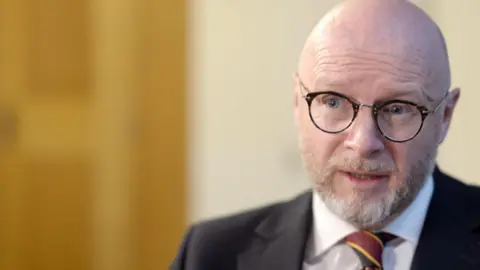
We put Mr Byrne's comments to Evri and a spokesperson said company couriers "generate earnings significantly above the National Living Wage".
The National Living Wage and the National Minimum Wage are currently the same for anyone aged over 21 - £12.21 an hour.
Average courier earnings, the Evri spokesperson continued, "exceeded £20 an hour". The "sector is highly competitive, but we benchmark pay locally", they added.
Small packets, small fees
It wasn't just Dave who told us the introduction of Evri's "small packets" has made it harder to make a living.
Other couriers told us they had started to see more of them in their rounds, and that it was eating into their earnings because they received less money to deliver them.
Rates vary, but Evri pays couriers as little as 35p to deliver one.
The company told us it had introduced the new "small packets" sizing in January to "remain competitive".
However, big parcels, for which couriers would be paid more per delivery, keep getting mislabelled as small packets, some couriers told the BBC.

 Getty Images
Getty ImagesEvri does not do enough to check the items are being accurately weighed and measured by senders, they said - with heavy flatpack furniture and radiators listed as examples of large items which had been "misbanded" and paid for as small packets.
One courier told us he delivered "countless numbers of misbands", leaving him short-changed.
Parcels are labelled by clients, not Evri, the company told the BBC. It said that 99.2% of all parcels were correctly banded - and that "couriers can request checks and upgrades via the courier app, if they think a parcel has been misbanded".
'There's a safe space for everything, mate'
An Evri courier of 10 years told us their colleagues were "cutting corners" because they had to deliver so much in terms of volume to get a decent wage.
"They are not doing the job correctly… parcels go missing," he added. "Piles of parcels are found in hedges."
Our undercover reporter, who we are calling Sam because he wants to remain anonymous, was told by another courier, "if you want to earn money, you need to find a safe place and leave it there".
"You can even throw the parcel at the back door, you only get paid if the parcel is delivered," the courier explained during Sam's six-day stint in October at Evri's West Hallam delivery unit near Nottingham.
As a new starter, Sam was put on a Flex contract, which does not include sick or holiday pay and does not commit to paying the minimum wage, unlike the Plus contract.
It can be difficult for new starters to earn the same as more experienced couriers, as they don't know their patch, so they won't be as efficient.
Sam was told he could be eligible for some extra cash. New starters get payments to ensure they earn adequately while they get used to the work, Evri's lawyers told the BBC.
Couriers told us they are not paid extra for the time it takes to scan the parcels and load them into their vehicles at depots - but Evri says it factors this time into its parcel rates.

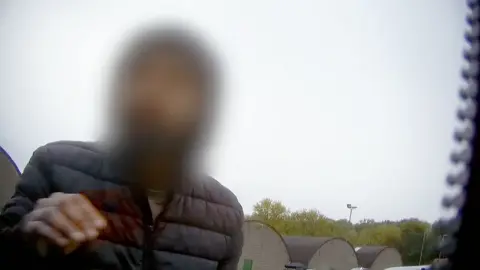
Couriers are also only paid if a package is delivered and a photograph is taken - which is supposed to mean giving it to the customer, a neighbour, or finding a safe place, and not leaving it in plain sight outside the delivery address.
If drivers cannot deliver a parcel, they should make at least two more attempts to do so - according to Evri rules - but this takes time.
Back at the depot, a courier told Sam there was not much point trying to redeliver because couriers did not get paid for going back.
"You'll make no money, my friend, unless you get all your parcels out. Get them all out," he said. "There's a safe space for everything, mate."

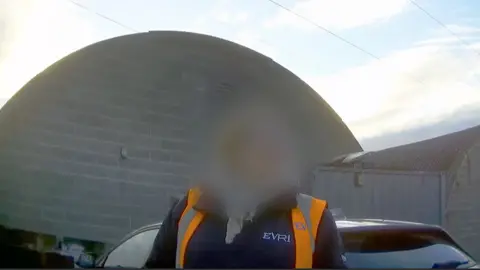
The company says it will deliver about 900 million parcels this year, going to almost every single home in the UK.
But 7% of customers in the six months between January and July said they had reported an Evri parcel not having been delivered - compared to an industry average of 4% - according to Ofcom's recent consumer survey.
The survey also suggested Evri had the most issues for delays in the UK, with 14% of customers reporting a parcel arriving late in the same period. The industry average is 8%, says Ofcom.
Evri told us it provides "a fast, reliable, and cost-effective delivery service" and that its "couriers are local people… and the vast majority do an excellent job and strictly follow our delivery standards".
If "a courier receives a low customer rating for a delivery, this is immediately investigated", it says.
The company, which rebranded from Hermes UK in 2022, has been owned since last year by the American investment firm Apollo Global Management. In the financial year 2023-24, Evri's pre-tax profit almost doubled to nearly £120m.
"I think Evri are making a fortune off the couriers' backs and I think the couriers are being totally ripped off," one courier told us.
For Becky and Jonathan in Hampshire, at least, all was not lost.
Becky started a spreadsheet for other people in the area to list their missing Evri parcels, after seeing how many comments were being left on the village Facebook group.
Almost 90 incidents were reported to the police. A man was arrested but never charged.
Lawyers for Evri told the BBC that this was an isolated incident and that the company took prompt action.
"The performance of our couriers is tracked in real time, with mandatory photo proof for every delivery," the company said.
Becky got a refund from the seller and bought a new Barbie, and Jonathan got his tools replaced by the seller.




